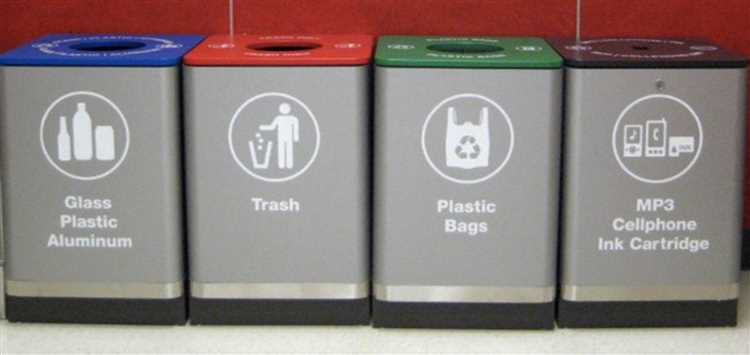When it comes to shopping at Target, one question that often comes to mind is whether their bags are recyclable. In an effort to promote sustainability, many shoppers are seeking out ways to reduce their environmental impact and make more eco-friendly choices. So, let’s dive into the truth about Target bags and their recyclability!
Target bags, commonly known as Tote Bags, are indeed recyclable! These bags are typically made from a type of plastic called polypropylene, which is a recyclable material. This means that when you’re finished with your Target bag, you can toss it in the recycling bin instead of the trash, ensuring that it can be repurposed and turned into new products.
However, it’s important to note that not all recycling facilities accept polypropylene bags. This is because the recycling process for these bags can be more complex than other plastic materials, such as bottles or containers. Therefore, it’s crucial to check with your local recycling program or facility to determine whether they accept Target bags before including them in your recycling bin.
Additionally, if your recycling program does not accept polypropylene bags, there are alternative ways to repurpose your Target bags. You can use them for various purposes around the house, such as storing items, organizing your belongings, or even as a reusable shopping bag for your next trip to Target!
In conclusion, Target bags are recyclable, but it’s essential to verify whether your local recycling program accepts them. By taking this extra step and making sure you dispose of your Target bags correctly, you can contribute to a more sustainable future and reduce the amount of plastic waste that ends up in landfills or our oceans.
- The Importance of Recycling Plastic Bags
- Understanding Target’s Bag Recycling Policy
- Alternatives to Recycling Target Bags
- Reusable Shopping Bags
- Biodegradable Bags
- BYOB (Bring Your Own Bag)
- Tips for Properly Recycling Target Bags
- Q&A:
- Are Target bags recyclable?
- Can I recycle Target bags at the store?
- What happens to the Target bags after they are recycled?
- What if my local recycling program doesn’t accept plastic bags?
- Can I reuse Target bags instead of recycling them?
- Are Target bags recyclable?
- What type of plastic are Target bags made of?
The Importance of Recycling Plastic Bags
Plastic bags have become a ubiquitous part of our daily lives, and it is important to understand the impact they can have on the environment if not properly recycled.
Firstly, plastic bags are made from non-renewable resources such as fossil fuels, primarily oil. The extraction and processing of these resources contribute to air and water pollution, as well as greenhouse gas emissions. By recycling plastic bags, we can minimize the demand for new resources and reduce the associated environmental damage.
Furthermore, plastic bags are one of the most common forms of litter. They are lightweight and easily carried by the wind, often ending up in waterways where they pose a threat to marine life. The ingestion of plastic bags can be fatal to animals, as they can become entangled or suffocated by them. Recycling plastic bags helps prevent them from entering the ecosystem and harming wildlife.
Recycling plastic bags also helps to conserve energy. The process of manufacturing new plastic bags requires significant amounts of energy, contributing to the overall carbon footprint. By recycling, we can reduce energy consumption and the associated greenhouse gas emissions.
In addition, recycling plastic bags provides economic benefits. This industry creates jobs in the recycling sector, contributing to the local economy and reducing unemployment rates. It also reduces the cost of waste management for municipalities by diverting plastic bags from landfills.
It is important to note that not all recycling programs accept plastic bags, which is why it is crucial to find specific drop-off locations or take advantage of recycling programs offered by supermarkets or retailers. These programs often collect plastic bags separately to ensure they are properly recycled.
In conclusion, the importance of recycling plastic bags cannot be overstated. By recycling, we can conserve resources, protect wildlife, reduce pollution, conserve energy, and support the economy. It is essential that individuals take responsibility for properly disposing of their plastic bags to minimize the negative impact on the environment.
Understanding Target’s Bag Recycling Policy

Target is committed to promoting sustainability and reducing waste. One aspect of this commitment is their bag recycling program. Target provides recycling bins near the entrance of their stores specifically for plastic bags and other flexible film packaging. These bins are marked with the recycling symbol and the words “Take Back” to indicate that they accept plastic bags for recycling.
Target’s bag recycling policy includes accepting not only their own plastic bags but also any clean and dry plastic bags from other retailers. This means that customers can bring in plastic bags from any store and drop them off in the recycling bins at Target. This policy makes it convenient for shoppers to properly dispose of plastic bags and reduce their impact on the environment.
It’s important to note that not all plastic bags are recyclable. Target’s recycling program only accepts bags labeled with the recycling symbol, typically found on the bottom of the bag. Bags that are heavily soiled or contaminated with food waste should not be placed in the recycling bins and should instead be disposed of properly.
Once the plastic bags are collected, Target works with recycling partners who specialize in processing and recycling plastic film. These partners ensure that the bags are properly sorted, cleaned, and transformed into new plastic products, such as composite lumber, outdoor decking, and other plastic items. By participating in Target’s bag recycling program, shoppers are helping to close the recycling loop and support the creation of sustainable products.
In addition to their bag recycling program, Target offers reusable bags for purchase at their stores. These durable and reusable bags are an eco-friendly alternative to single-use plastic bags. Target encourages customers to bring their own reusable bags when shopping and offers incentives, such as discounts or loyalty points, for doing so.
Overall, Target’s bag recycling policy demonstrates their commitment to sustainable practices and encourages customers to reduce their environmental impact. By providing convenient recycling bins and accepting plastic bags from any retailer, Target makes it easy for shoppers to responsibly dispose of plastic bags and contribute to a more sustainable future.
Alternatives to Recycling Target Bags
If you find that Target bags are not recyclable in your area or if you simply prefer to reduce waste and minimize the use of plastic bags altogether, there are several alternatives you can consider. These alternatives are eco-friendly and can have a positive impact on the environment.
Reusable Shopping Bags

One of the best alternatives to recycling Target bags is to invest in reusable shopping bags. These bags are made from durable materials such as cotton or canvas and can be used multiple times. By using reusable bags, you can significantly reduce the amount of plastic waste generated from single-use bags.
Biodegradable Bags
If you still prefer the convenience of disposable bags, you can opt for biodegradable bags. These bags are designed to break down over time, unlike traditional plastic bags which can take hundreds of years to decompose. Look for biodegradable bags made from plant-based materials such as cornstarch or vegetable oil.
Note: It is important to dispose of biodegradable bags correctly. They should be placed in compost or recycling bins specifically designated for biodegradable materials. Disposing of them in regular trash bins can hinder their ability to decompose properly.
BYOB (Bring Your Own Bag)
An easy way to avoid using Target bags is to bring your own bag whenever you go shopping. Many stores, including Target, encourage customers to bring their own bags by offering incentives or discounts. Keep a foldable shopping bag in your purse or car, so you are always prepared for a shopping trip.
Remember, reducing the use of plastic bags is not only good for the environment but also for your wallet. By utilizing alternatives to recycling Target bags, you can make a positive difference and contribute to a greener future.
Tips for Properly Recycling Target Bags
Target bags can be recycled, but it is important to follow certain guidelines to ensure that they are recycled properly. Here are some tips to help you recycle your Target bags:
1. Check for recycling symbols: Look for the recycling symbol on the bag. It is usually a triangle with arrows indicating that it is recyclable. If the bag does not have a recycling symbol, it may not be recyclable.
2. Clean the bags: Make sure to clean the bags before recycling them. Remove any food residues or other contaminants that could potentially contaminate the recycling process.
3. Separate bags from other recyclables: Keep the Target bags separate from other recyclable materials. This will make it easier for recycling facilities to process and recycle them.
4. Drop-off locations: Find drop-off locations in your area that accept plastic bags for recycling. Many grocery stores and supermarkets have collection bins specifically for plastic bags, including Target bags.
5. Reuse bags: Consider reusing Target bags instead of recycling them. They can be used for storage, as liners for small trash cans, or even as shopping bags for future trips to the store.
6. Spread the word: Educate your friends and family about the importance of properly recycling Target bags. Encourage them to follow these tips as well.
Remember, proper recycling of Target bags not only helps reduce waste but also contributes to the overall sustainability efforts. By following these tips, you can do your part in promoting responsible recycling practices.
Q&A:
Are Target bags recyclable?
Yes, most Target bags are recyclable. They are usually made from high-density polyethylene (HDPE) plastic, which is commonly accepted by recycling facilities.
Can I recycle Target bags at the store?
Yes, many Target stores have recycling bins specifically for plastic bags. You can drop off your used Target bags there for recycling.
What happens to the Target bags after they are recycled?
After being collected, the recycled Target bags are usually sent to a recycling facility where they are sorted, cleaned, and processed into new plastic products, such as garbage bags or composite lumber.
What if my local recycling program doesn’t accept plastic bags?
If your local recycling program does not accept plastic bags, you can try to find other recycling options. Many grocery stores and retailers have collection bins for plastic bags, including Target. You can also check with your municipality or local waste management facility for alternative recycling options.
Can I reuse Target bags instead of recycling them?
Yes, you can reuse Target bags for various purposes, such as carrying groceries, storing items, or even as trash bags. Reusing them is a great way to reduce waste before eventually recycling them.
Are Target bags recyclable?
Yes, Target bags are recyclable. They are made from plastic material that can be recycled. However, it is important to note that not all recycling facilities accept this type of plastic. It is best to check with your local recycling guidelines to ensure that you can recycle Target bags in your area.
What type of plastic are Target bags made of?
Target bags are typically made of high-density polyethylene (HDPE) plastic. This type of plastic is commonly used for shopping bags, milk jugs, and detergent bottles. HDPE plastic is known for its strength and durability, as well as its recyclability.